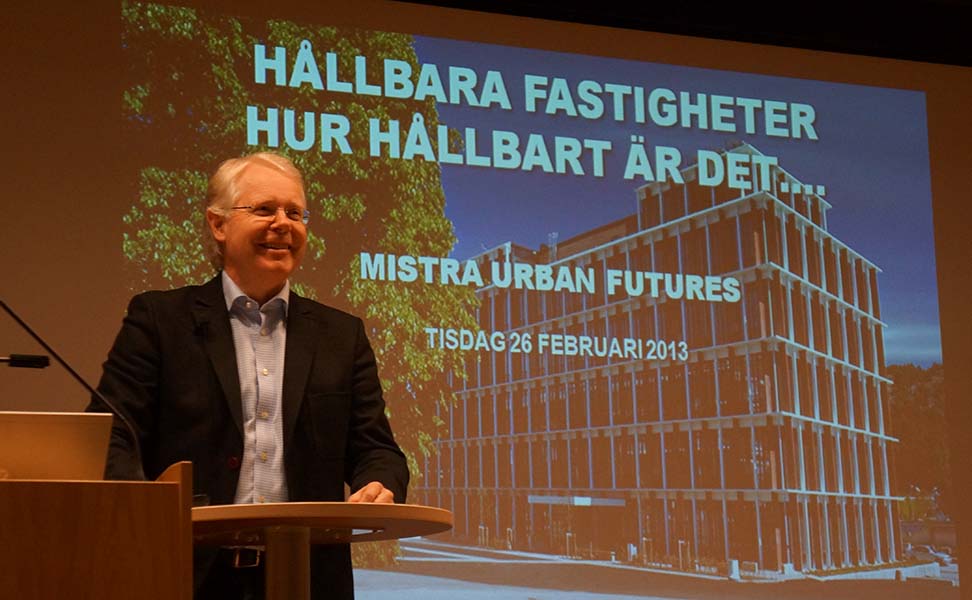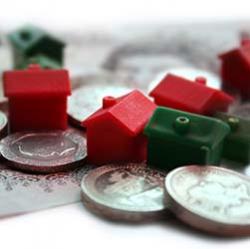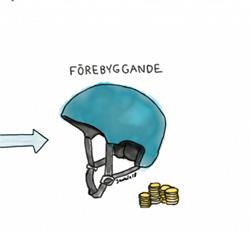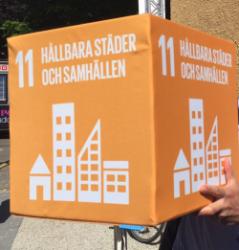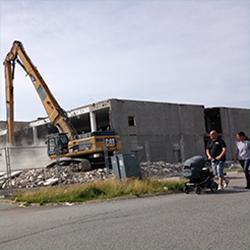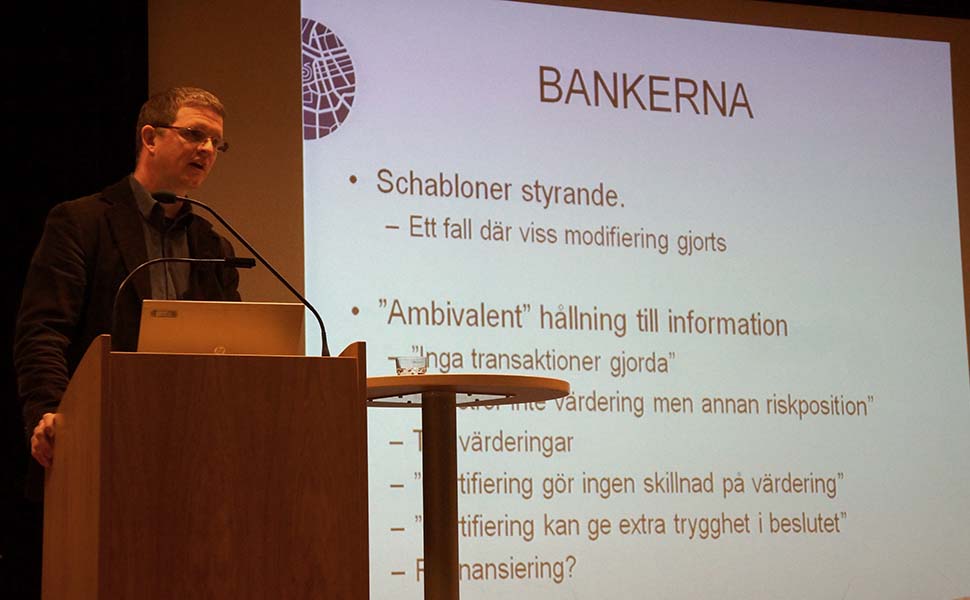
Valuation of climate-friendly buildings
Large investments are required to meet the climate challenges and to achieve a transition of the energy system in general, and energy efficiency in particular. In order to reach the two degree target set at COP 15 in Copenhagen in 2009, the International Energy Agency has estimated that additional investments in the energy sector of $ 10 500 billion between 2010 and 2030 are needed.
Property owners in Sweden who want to invest in climate-friendly buildings experiences a difficulty receiving loans from the banks. This was presented by Conny Overland, University of Gothenburg and Berth Olsson, Bengt Dahlgren AB Göteborg at Urban Lunch-time in Gothenburg on February 26.
Why does the bank say no?
If Property owners are to build energy efficient an additional investment is needed, which in turns requires financing. Building energy efficient brings an added-value, but this is not recognized by the bank because the property owner’s project-specific calculations are not consistent with the banks' standard values for energy use. The problem becomes particularly significant for small businesses, as larger companies often use their own capital to finance the investment.
Are certifications and property valuers the solution?
Consequently there is an information asymmetry between the bank and the property owner. The two parties do not have the same information and does not base the valuation on the same facts. The project Collateral values has examined if certifications such as Leed, Breeam and the Swedish certification Miljöbyggnad and third party reviews by property valuers could be the solution. The results show that it is the banks' use of standard values that is the biggest obstacle.
The industry must work together
Berth Olsson states that the industry must work together, the time is right, it is possible to make a difference. Sweden Green Building Council is conducting a data collection that can serve as decision support for banks. The development in Sweden has gone quickly in terms of environmental certification. In only four years, 100 properties have been certified and 200 are in the pipeline to become certified. Since certifications, offers a third-party audit the quality is increased and the properties' performance is ensured. The industry believes that the certification will affect the banks' way to assess investments and Conny Overland believes that banks will change their way of valuing investments. The only question is when.
Read more about the project Collateral Values
